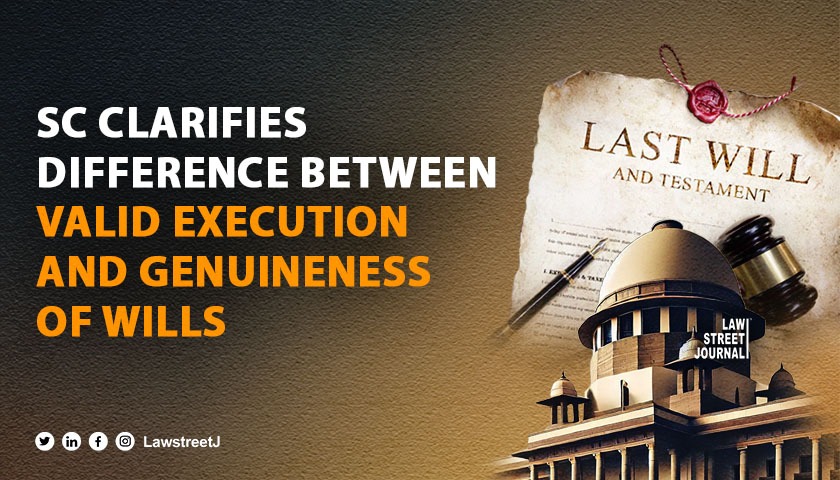New Delhi: The Supreme Court, through Justices C.T. Ravikumar and Sudhanshu Dhulia, has delivered an important judgment clarifying the procedure for examining suspicious circumstances in testamentary cases.
The case arose from a civil appeal challenging the Bombay High Court Division Bench’s judgment, which had reversed a Single Judge’s order in a testamentary suit.
Supreme Court Defines Key Difference Between Valid Will Execution and Genuineness
The matter involved Myra Philomena Coalho’s petition seeking Letters of Administration for her deceased mother, Maria Francisca Coelho’s will dated July 7, 1982. The will had bequeathed properties equally among her three children.
The Court emphasized the distinction between the “valid execution” and the “genuineness” of a will, noting that these are separate considerations. The judgment stated, “Holding that ‘a Will is validly executed’ and ‘a Will is genuine’ cannot be said to be the same.”
Testamentary Cases: SC Stresses Examination of Suspicious Circumstances
The Supreme Court observed that even after establishing valid execution, the Court retains jurisdiction to examine suspicious circumstances. The Bench clarified, “Even after holding that a Will is genuine, it is within the jurisdiction of the Court to hold that it is not worthy to act upon, as being shrouded with suspicious circumstances when the propounder fails to remove such suspicious circumstances.”
Setting aside the High Court Division Bench judgment, the Supreme Court remanded the matter for fresh consideration, directing completion within six months. The Court stated that mere proof of execution does not preclude the examination of suspicious circumstances.
The Bench referenced its recent decisions in Kavita Kanwar v. Pamela Mehta & Ors. and Derek A.C. Lobo & Ors. v. Ulric M.A. Lobo to support its position on the legal requirements for proving a will.
The Court directed the Bombay High Court to reconsider the appeal expeditiously, allowing the parties to present all legal and factual arguments emerging from the evidence.
Case title: Lilian Coelho & Ors. v. Myra Philomena Coalho













